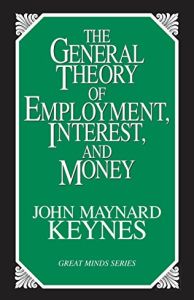Acesse a sua conta getAbstract para obter o resumo!

Acesse a sua conta getAbstract para obter o resumo!
John Maynard Keynes
The General Theory of Employment, Interest, and Money
Prometheus Books, 1997
Sobre o que é?
The 2008 financial crisis and Great Recession made Keynes’s General Theory relevant again.
Recommendation
In 1936, in the midst of the Great Depression, John Maynard Keynes forever transformed the field of macroeconomics with this classic and still controversial work. In it, he argues vigorously for strong government action to correct the excesses of laissez-faire capitalism. Some professionals believe that many of this book’s lessons disappeared from the collective consciousness as neoclassical economics spread widely, beginning in the 1970s. But since the 2008 financial crisis and the ensuing Great Recession, insights drawn from Keynes’s original ideas are gaining renewed attention. His writing can be dense and difficult to understand at times, although some sections are easy and enjoyable to read, and you’ll find dozens of colorful and eloquent sentences to quote. getAbstract recommends this product of genius, whether or not you follow – or subscribe to – every idea. According to one-half of the world’s top economists, the other half doesn’t completely understand its messages, either.
Summary
About the Author
John Maynard Keynes [1883–1946] was arguably the most influential economist of the 20th century. He is known as the founder of modern macroeconomics.


















Comment on this summary